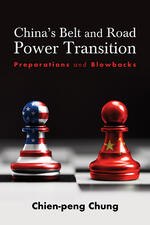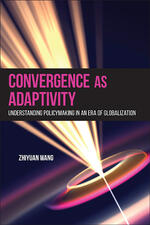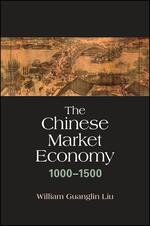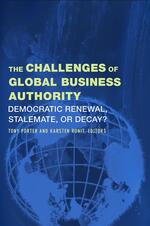Political Economy
China's Belt and Road Power Transition
Details the Belt and Road global infrastructure development initiative as the most important instrument for China’s leadership under Xi Jinping to create an alternative global economic and geopolitical order to challenge the United States.
Popular Sovereignty in a Digital Age
Looks at how digitalization has changed the way we produce and interact, and the implications for working classes and countries of the Global South.
Convergence as Adaptivity
Argues that states substitute unwanted policy changes dictated by globalization with politically feasible ones, leading to policy convergence.
Global Libidinal Economy
Claims unconscious desire plays a constitutive role in global political economy.
The China Record
Detailed assessment of the People's Republic of China as an alternative mode of political system and as a distinctive model of socioeconomic development.
Capitalism for All
Demonstrates that a true liberal capitalism has the capacity to enable personal well-being while dealing with new challenges such as pandemics, climate change, and automation.
A New American Labor Movement
Describes how new kinds of direct-action labor movements are emerging to reshape American labor activism in the twenty-first century.
Imagining the Fed
Traces the six-decade struggle for power within the Federal Reserve System from the perspective of the central bankers who shaped the Fed.
Energy, the Modern State, and the American World System
Examines political authority in the modern era as a function of specific energy politics.
The Debt of the Living
An analysis of theological and philosophical understandings of debt and its role in contemporary capitalism.
Toward a Critical Theory of States
In-depth study of the enduring impact of the 1970s debate between state theorists Ralph Miliband and Nicos Poulantzas.
Hegel and Capitalism
Examines Hegel’s unique understanding and assessment of capitalism as an economic, social, and cultural phenomenon.
The Chinese Market Economy, 1000–1500
Documents the rise and fall of a market economy in China from 1000-1500.
The New Governance of Welfare States in the United States and Europe
Detailed examination of the territorial and governance dimensions of contemporary welfare reforms in the United States and Europe.
Corporate Power, Oligopolies, and the Crisis of the State
Addresses the power of oligopolistic corporations in contemporary society.
Civilizing Globalization, Revised and Expanded Edition
Discusses the many facets of globalization and its feasible reform in easy-to-understand language.
Happiness, Democracy, and the Cooperative Movement
Examines the political significance of ideas about happiness through the work of utilitarian philosophers William Thompson and Jeremy Bentham.
Community, Culture, and Economic Development, Second Edition
Newly updated comparative study of economic development policy, and its relationship with local power structures and cultural and social relations, in two Maryland towns.
Systems of Violence, Second Edition
Expanded new edition of an important study of the protracted violence in Colombia.
Energy and Empire
Reveals the role played by political and economic elites in the privileging of civilian commercial nuclear energy over other options, such as solar, in the United States after 1945.
The Challenges of Global Business Authority
An astute assessment of democratic principles and decision-making structures in the global business world.
Policing Narratives and the State of Terror
Examines the recent “War on Terror” and the increasing privatization of international policing through the lens of detective fiction and security and espionage narratives.
Negotiating Democracy
Explores the relationship between media and democracy against the broader background of globalization.
Olympic Industry Resistance
A critical look at the Olympics in the postbribery, post-9/11 era, particularly at consequences for host cities and so-called “Olympic education” for schoolchildren.
The Chinese and Opium under the Republic
Examines China’s attempts to control the opium economy in the early twentieth century.
























